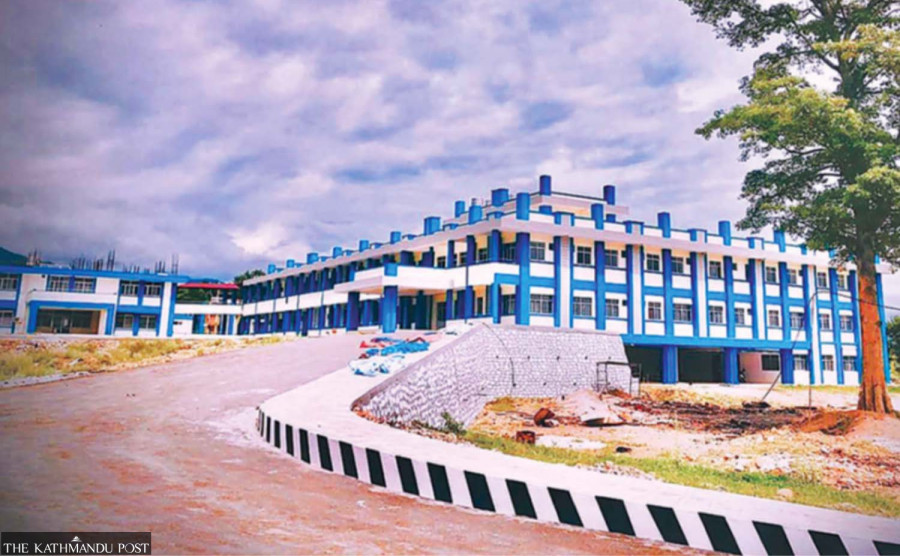Editorial
Service sans security
We must help build a better rapport between doctors and patients for quality health care.
Sixty doctors of the Karnali Academy of Health Sciences on Wednesday resigned en masse, citing insecurity following an assault on, and subsequent arrest of, Dr Karan Sah by a staff member of the academy. Sah was reportedly physically assaulted by Dhan Bahadur Shahi, an administrative employee, in the emergency unit on August 18. Shahi claimed that the doctor had failed to attend to a non-emergency case of his child immediately. As if the assault was not enough, the family of the abuser reportedly filed a false complaint against the doctor, leading to his arrest. The continued confrontation between doctors and locals in Jumla led to the doctors' mass resignation, which has affected health care in Jumla. Ultimately, it is the patients who are going to suffer if the conflict is not solved amicably and immediately.
Workplace violence against health professionals is nothing new in Nepal. In June last year, a medical officer and an office assistant at a Covid-19 dedicated hospital in Tamakoshi Rural Municipality in Dolakha were manhandled for alleged delay in attending to a patient. In May of that year, doctors and nurses at Bheri Hospital were assaulted by relatives of a Covid-19 patient who died while undergoing treatment. In most cases, health professionals are assaulted by relatives of patients who fail to receive immediate treatment or die in the course of treatment. As the assault on medical professionals continued to rise, the Nepal Medical Council (NMC) in December 2019 cautioned doctors to fulfil all minimum standards for the safety of patients during treatment. The council also appealed to the general public not to resort to violence and seek legal remedy. In an absurd episode in June this year, traffic personnel reportedly assaulted a doctor for simply walking at night in Kusunti in Lalitpur after completing his duty at Arogya Foundation in Pulchowk.
No matter how many appeals the NMC puts forth or how diligently the health professionals tend to their patients, the conflict between the professionals and the patient party will not subside anytime soon unless there is a greater effort toward creating awareness about the nature of the medical profession. As with all other professions, there is always some space for human error that might lead to professional hazards such as death and impairment of patients, but these are extremely few and far between. Moreover, the fact that health professionals in a country like Nepal are overworked means that they might not be able to tend to patients immediately or make errors of judgement in some cases. In many cases, the health professionals do not even find time to explain the diagnosis and prognosis of a patient due to sheer workload, leading to a misunderstanding. Add to that the power relation between the doctor and the patient, whereby doctors are regarded as 'living deities' in whose mercy a patient survives, and the conflict intensifies in the event of unsuccessful or deferred treatment.
However, a remedy to the problem resulting from professional hazards is never an assault on health professionals. Except perhaps for rare exceptions, health workers are in the profession to serve patients. However, the activities of some patients and their relatives are outright aggressive in the absence of expected positive outcomes. It is high time there is a broad effort to make the general public understand that there is a standard protocol health workers should follow, failing which they can face legal repercussions. While the regulating bodies should be responsive to patient parties' complaints, there is also a need to implement stringent measures to ensure the safety of health workers at the workplace.




 9.7°C Kathmandu
9.7°C Kathmandu














